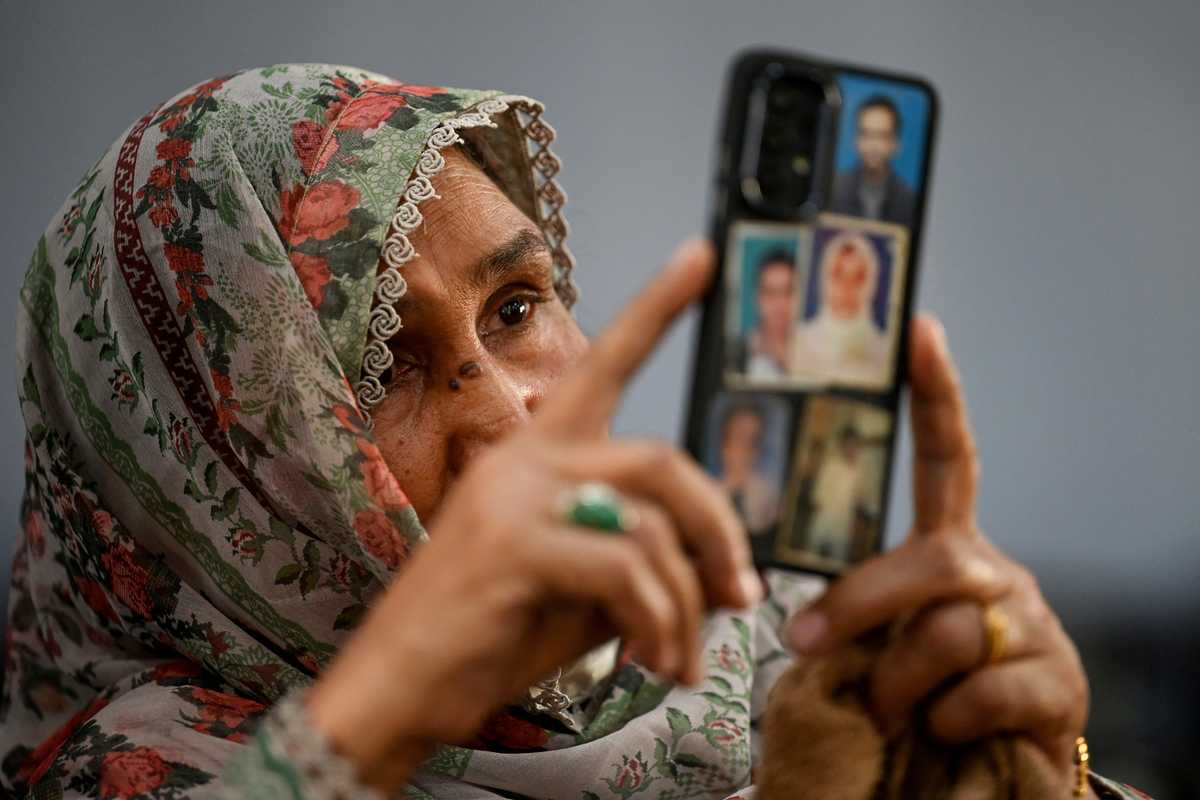Pakistan court orders govt to constitute inquiry commission to probe rise in cyber blasphemy cases
Order comes on petition filed with Islamabad High Court by families of 101 accused
Ali Hamza
Correspondent
Ali; a journalist with 3 years of experience, working in Newspaper. Worked in Field, covered Big Legal Constitutional and Political Events in Pakistan since 2022. Graduate of DePaul University, Chicago.

Local court in Islamabad awards death penalty to two more accused
Convictions total 8 since September 2024
A court in Pakistan has ordered the government to constitute an inquiry commission to probe the rise in the number of cyber blasphemy cases in the country.
The order came on a petition filed with the Islamabad High Court (IHC) in September 2024 by the families of 101 accused of cyber blasphemy.
The petition stated that the petitioners became aware, through various social media platforms including X and Facebook, of a January 2024 special report by the Special Branch of Punjab Police titled ‘The Blasphemy Business’.
As per the report, a suspicious gang was trapping youth in blasphemy cases and extorting money from them in connivance with the Federal Investigation Agency (FIA) in Rawalpindi and Islamabad.
The petition further alleged that this gang was reportedly the complainant in approximately 90% of blasphemy cases registered by the FIA. The group, comprising both men and women, operates under the banner of an organization called the ‘Legal Commission on Blasphemy’.
The complaints and FIRs lodged with the FIA’s Cyber Crime Wing follow a strikingly similar pattern, with identical narratives being used against the accused.
Over 400 individuals were claimed to have fallen victim to this alleged scheme, with 70% of them being men and women in their 20s or even younger. The petition further stated that all victims belong to poor or lower-middle-class Muslim families.
Furthermore, the petitioners contended that despite families reaching out to the federal government to investigate the matter in light of the report, their pleas have gone unanswered.
The court’s order
The order issued by Justice Ejaz Ishaq Khan on January 31, 2025, stated that there was nothing in the petition nor in the prayer for the constitution of the commission that, in any manner, requires a review of Pakistan’s blasphemy laws.
The judge noted that the petition and reports by the Human Rights Commission of Pakistan, FactFocus, and others focus on potential abuse of blasphemy laws, necessitating an investigative, quasi-judicial inquiry. The court deemed a commission the appropriate course to examine these concerns.
Since the petition does not contain specific allegations against individuals, the commission would determine if blasphemy laws are being misused and, if so, identify those responsible. The judge emphasized that those advocating against online blasphemy should participate in the process to separate truth from falsehood and expose those tarnishing legitimate efforts.
The court provided guidance on the commission's composition, suggesting it include a retired judge of the Supreme or High Court, a former senior FIA officer, a respected religious scholar with a history of public service, and an IT expert to navigate the technical aspects of the investigation. The commission's Terms of Reference (TORs) would include:
- Reviewing reports annexed to the petition and any additional evidence to determine if blasphemy laws have been abused through false complaints.
- Identifying the methods used for such abuse and those responsible.
- Conducting public hearings, except in highly sensitive matters such as reviewing offensive content.
- Co-opting investigators as needed for related inquiries.
The court directed the Ministry of Interior to move a summary before the federal cabinet for the commission’s formation under the Pakistan Commission of Inquiry Act, 2017. The Additional Attorney General, Barrister Munawar Iqbal Duggal, assured that the ministry was willing to proceed and was instructed to ensure swift action.
Additionally, on the request of Advocates Hafiz Mazhar Javed, Adil Aziz Qazi, and Qamar Niazi, the court added another TOR: the commission must investigate whether foreign entities are funding the rise in online blasphemy.
Two more accused awarded death sentence
Meanwhile, a local court in Islamabad sentenced two more individuals to death for cyber blasphemy on January 30, 2025, bringing the total to eight death penalties, one life imprisonment, and one acquittal out of 33 cases reported in Islamabad since September 2, 2024.
Twenty-two-year-old Muhammad Ayyaz Bin Tariq, a resident of Tehsil Cheecha Watni, District Sahiwal, Punjab, and Afaq Ahmed from Lahore were convicted under Section 11 of PECA, 295-C, 295-B, and 298-A of the Pakistan Penal Code (PPC).
Advocate Rana Abdul Hameed, counsel for Ayyaz Bin Tariq, told Nukta that the prosecution failed to present a credible case, alleging that the evidence was fabricated by a "professional complainant" who has filed multiple similar cases. He also accused the FIA of demanding a bribe from his client before framing charges against him.
He further claimed that Ayyaz, who worked as an associate engineer in Islamabad, was entrapped by what he described as a "blasphemy business group". He argued that PECA laws do not align with the Pakistan Penal Code (PPC) and should not be applied simultaneously.
The family of the other convict, Afaq Ahmed, declined to comment on the case.
Despite multiple attempts, Advocate Rao Abdul Raheem of the Legal Commission on Blasphemy and the FIA spokesperson did not respond to Nukta’s request for comments.






Comments
See what people are discussing